Imagine a world where you can reach billions of potential customers with just one click, build relationships, and generate revenue without spending much money on marketing. That’s the power of social media.
But are all businesses leveraging its benefits? Yes, many companies are. However, some still don’t believe that social media is an effective marketing channel for them.
We have good news if you’re one of those businesses (or marketers) still wanting to leverage social media for marketing. In this article, we’ll explore the importance of social media marketing and how you can use it to grow your business.
The Importance of Social Media For Marketing in 2024 and Beyond
68% of consumers follow brands on social media platforms to learn more about their products or services. You could benefit a lot from a strong social media presence.
You can also find new ways to generate and nurture leads by sharing valuable and engaging content such as infographics, blogs, and videos across multiple social media platforms.
Here’s a list of reasons to help you understand the importance of social media for marketing:
1. Helps Reach a Larger Audience
There are more than 4.8 billion active social media users worldwide, and this number is growing exponentially. You can reach beyond geographical boundaries with social media and connect with potential customers globally.
Social media algorithms and ad targeting capabilities also allow for precise audience segmentation. This means you can tailor your social media content and ads to specific demographics, interests, and behaviors, ensuring your message reaches the right people.
The vast reach of social media, combined with precise targeting, allows your business to maximize its marketing efforts, making it an indispensable tool for brand visibility, engagement, and, ultimately, company growth.
2. Helps Engage With Target Audience
In today’s digital age, the pivotal role of social media marketing is unmistakable.
It has truly orchestrated a profound transformation in how businesses and institutions engage with their audiences. And this change is extending into higher education, with even community colleges like Campus.edu using social media to their advantage.

By actively engaging with your audience, you can build stronger connections, generate leads, and build brand loyalty, helping to grow your business.
Compelling content, quick responses to comments, and meaningful interactions will engage customers, encouraging them to form a deeper connection with your brand.
That way, you not only maintain existing customer relationships but also create a community around your brand. This, in turn, amplifies trust and brand promotion.
Additionally, customer engagement generates valuable feedback and insights, helping you tailor your marketing strategy to better meet the wants and needs of your audience.
As such, the interdependent relationship between customer engagement and social media marketing is indispensable for your business growth and long-term success in the digital age.
3. Helps Create Targeted Advertising
Marketing on social media is essential to tailor your campaigns to reach your target audience.
Using demographic data (age, gender, location), psychographic information (interests, values, lifestyle), and behavioral patterns (orders placed, online activities), you can create targeted and effective ads.
This precision guarantees that your marketing efforts are well-spent and reach the right audience interested in your product or service.
This maximizes advertising effectiveness and increases your chances of conversion, as potential customers are more likely to engage with content that matches their interests and needs.
4. Helps Leverage Cost-Effective Marketing
One of the best parts about social media? It’s a cost-effective form of marketing.
You don’t have to pay for organic social media marketing. Create and share content, engage with your audience, and build your brand presence. It requires no direct costs.
While it takes time and effort to create engaging content and grow your social media following, the lack of advertising spend makes this a practical option when you’re on a limited budget.
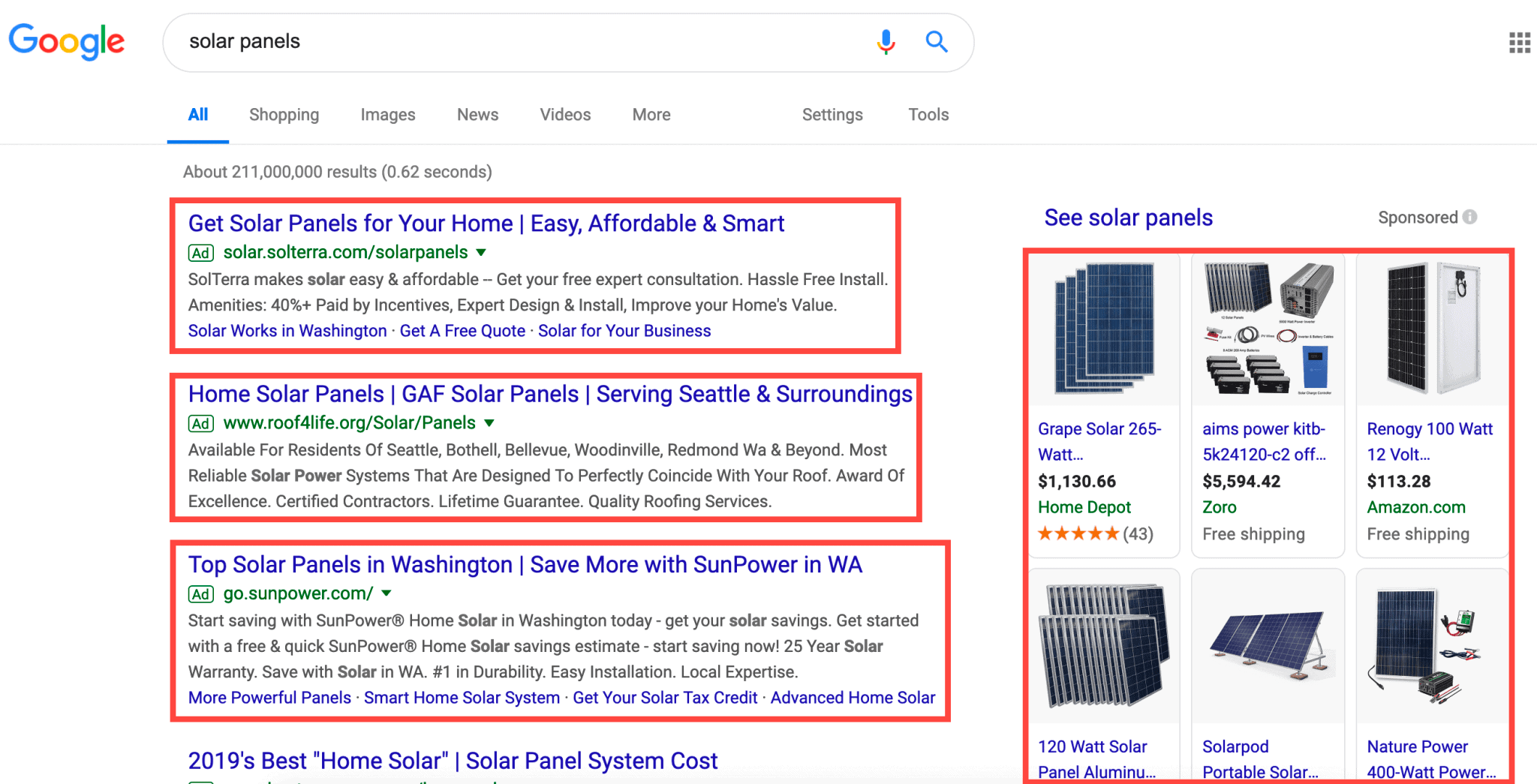
When you’re ready to dabble in ads, social media offers affordable paid advertising options. These include pay-per-click (PPC) ads, sponsored posts, and targeted ads.
You can set a budget, target specific demographics, and track your campaign performance in real time to get the most out of your marketing spend.
This flexibility allows you to compete effectively in the digital marketing landscape without the high costs of traditional advertising.
5. Helps Boost Brand Awareness
Building brand awareness is the fundamental goal of marketing, and social media is a powerful tool to help you do this.
You can showcase your products or services, share your company values, and tell your brand story in a way that captures attention and resonates with your audience. This exposure not only reaches existing customers but also new potential customers.
Additionally, social media’s viral nature means engaging content can be shared across networks, reaching a much wider audience than you could through traditional marketing channels.
By fostering a strong online presence, you can strengthen your social media reputation, gain customer trust, and make your brand stand out.
This leads to increased customer loyalty and, ultimately, more effective marketing efforts. Thus, social media is an essential tool for branding, making it a necessary part of any modern marketing strategy.
6. Helps Monitor Online Conversations
Customers often use social media platforms to share their thoughts and experiences related to brands. For example, they may express excitement about an upcoming product launch, share their feelings about an ad, or support a brand.
So, creating a strong social media presence is invaluable for understanding your public image among key demographics. Closely monitoring online conversations about your brand can help you quickly spot warning signs of a potential PR crisis, allowing for proactive damage control.

Additionally, participating in brand conversations on social media not only spreads positive messages but also strengthens your advertising efforts. 94% of leaders say that social media has a positive impact on brand loyalty.
You can use social media monitoring and listening tools to help you track online conversations and brand mentions in real time. We recommend trying them out.
7. Helps You Learn More About Your Competitors
Monitoring public perception of competing businesses on social networks can provide a valuable competitive advantage.
It allows you to understand better the strengths, weaknesses, and overall brand perception of competitors targeting your demographics. By observing their winning strategies and mistakes, you can make informed decisions to differentiate your brand and attract consumers more effectively.
Through competitor analysis, you can determine what resonates with your general audience, discover gaps in their offerings that you can fill, and understand your customers’ pain points.
This information can guide product development, marketing campaigns, and customer acquisition tactics. Additionally, you can position your brand more effectively in the marketplace, highlight unique selling points, and address consumer concerns.
For example, if a competitor’s product receives negative reviews due to environmental concerns, you can highlight your brand’s commitment to environmentally friendly practices to attract conscious consumers.
8. Helps Measure the Success of Campaigns
One can understand the importance of social media for marketing because it provides key analytics to evaluate the effectiveness of your marketing campaigns.
You can access comprehensive data on various performance metrics, such as engagement rates, click-through rates, reach, and audience demographics.
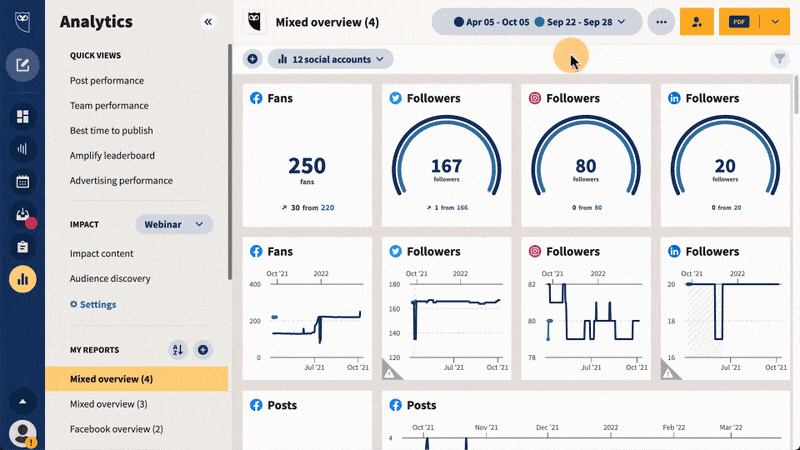
By diving deeper into these analytics, you can gain accurate insights into what’s working and what’s not and identify areas for improvement.
These metrics not only quantify campaign success but also inform data-driven decision-making. 92% of business leaders acknowledge social insights have a positive impact on improving competitive positioning.
For example, if the data shows that a particular post or ad is relevant to one specific demographic, you can tailor future content to serve that audience.
On the other hand, if a campaign underperforms, analytics will help identify areas for improvement, ensuring that marketing efforts become more targeted and effective over time.
This continuous feedback loop is fundamental to social media marketing, allowing you to refine your strategies for better results.
9. Helps You Provide Quick Support
Customer support is another important reason social media is essential for marketing.
67% of customers find it convenient to contact customer support on social media.
It provides a direct and immediate channel for customers to ask questions, express concerns, or report problems. This real-time reach and interaction demonstrates your company’s commitment to customer satisfaction.
Additionally, publicly answering customer questions on social media can be a powerful social proof. A wider audience can see positive interactions and problem-solving, improving your company’s reputation and trustworthiness.
In this example, Delta responds to a customer’s question on X (formerly Twitter) within an hour.
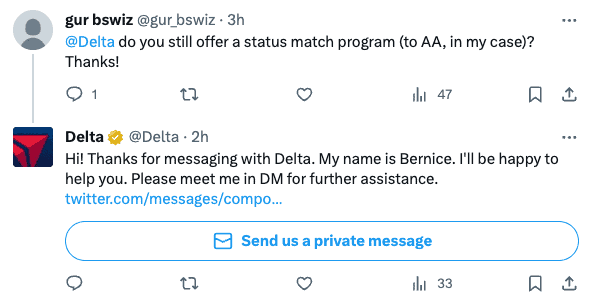
Conversely, poor handling of customer issues can lead to negative publicity, making effective customer support on social media essential for damage control.
In today’s highly connected world, providing great customer support on social media is not just a customer service function but an essential part of your marketing strategy because it directly affects your business’s brand awareness and customer loyalty.
10. Helps Leverage Influencer Marketing
The importance of social media for marketing lies in its ability to facilitate influencer marketing, a powerful strategy in which your business partners with influential people on social platforms.
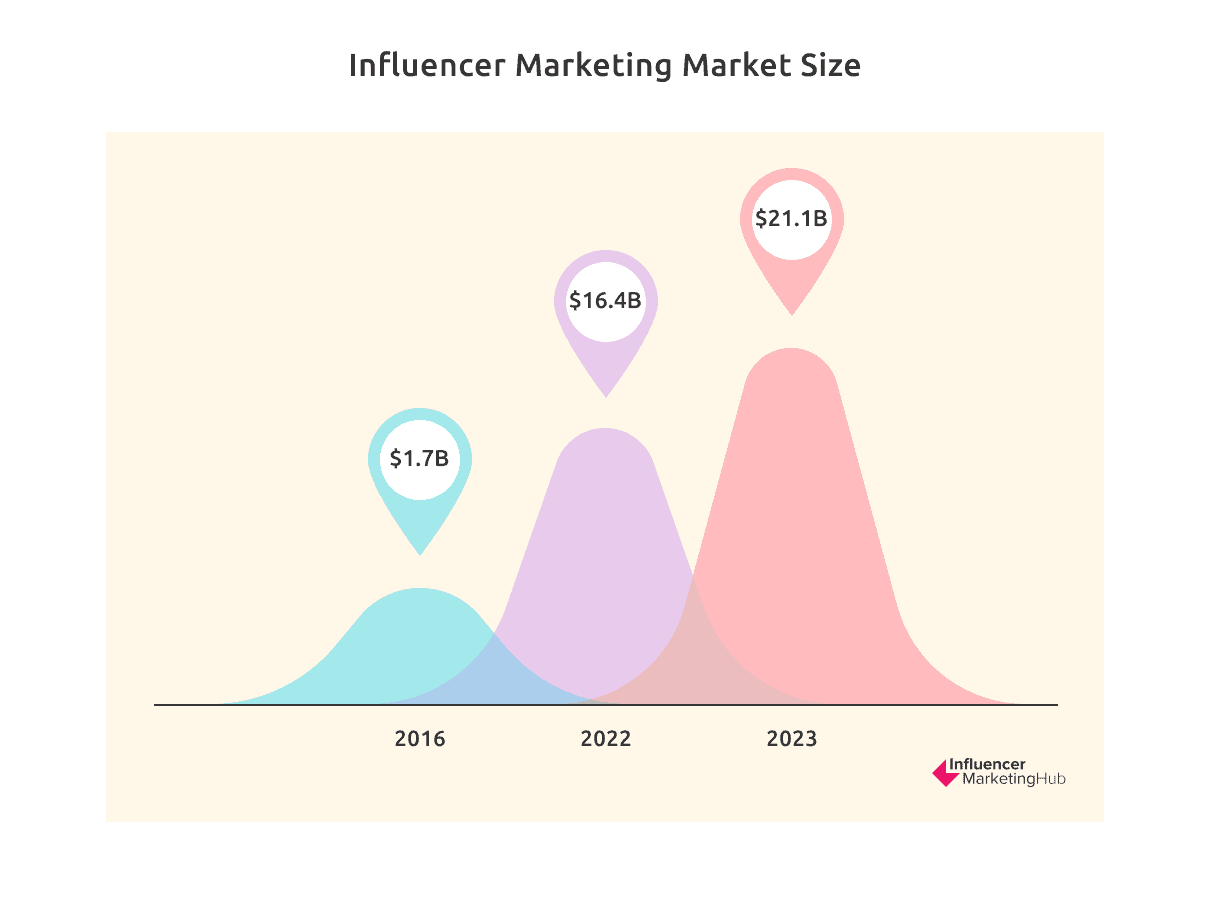
Social media influencers have built trust and devoted followings, making their recommendations and endorsements very effective. It helps you reach 31% of social media users who discover new products through influencers.
This approach can increase brand awareness, increase engagement, and conversions. Influencer marketing brings a personal touch to promoting your brand, making it more accessible to your target audience.
It also allows your business to tap into niche markets and demographics, tailoring your products to the interests and preferences of the influencer’s followers.
This results in a more authentic and trustworthy form of advertising, which can lead to increased sales and brand loyalty, making it an essential aspect of a comprehensive marketing strategy.
Two Brands That Reflect The Importance Of Social Media For Marketing
Nike and Starbucks are two brands that illustrate the importance of social media for marketing.
1. Nike
Nike is a world leader in athletic apparel and footwear. Their effective use of social media has shown how an established brand can maintain and grow its presence.
Nike leverages platforms like Instagram and X (formerly Twitter) to share inspirational content, athlete endorsements, and product launches.
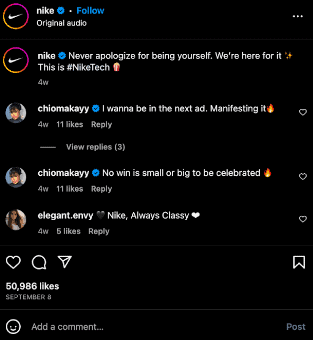
(Screenshot by Jugraj)
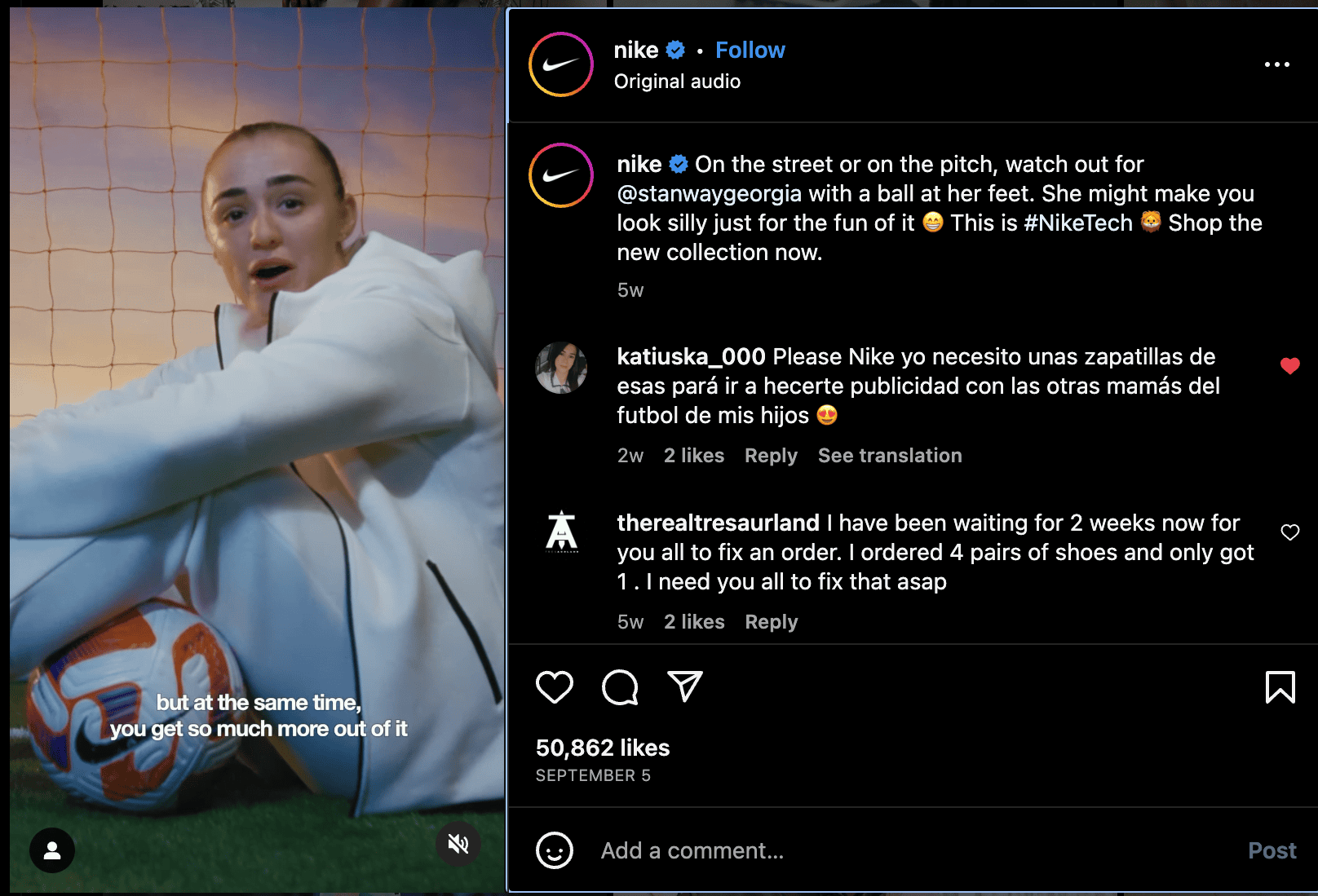
(Screenshot by Jugraj)
They engage with their audiences through campaigns like #JustDoIt, encouraging consumers to share their fitness journeys, creating a sense of community, and inspiring customer loyalty.
Nike also uses influencer marketing, partnering with athletes and fitness influencers to reach niche markets and promote their products in a credible and authentic way.
2. Starbucks
Starbucks is known for its strategic presence on social media. The company creates seasonal and limited-time offers to promote on platforms like Facebook, Instagram, and Twitter, generating buzz and anticipation among its audience.
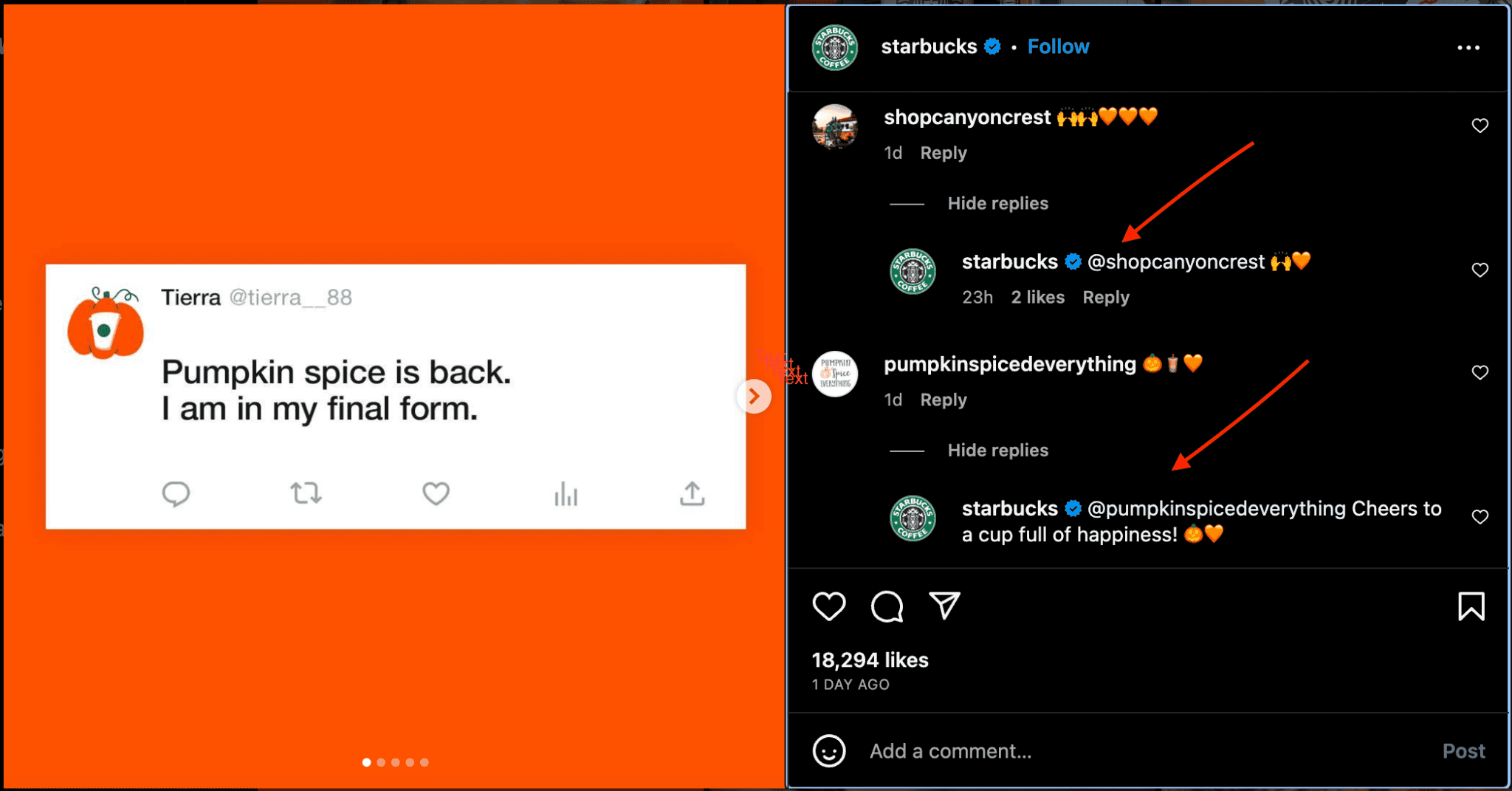
(Screenshot by Jugraj)
Starbucks encourages user-generated content through contests and engagement campaigns. The #Starbucks hashtag encourages customers to share moments at Starbucks, turning them into brand advocates.
Starbucks’ active engagement on social media fosters relationships with customers and drives traffic to its stores.
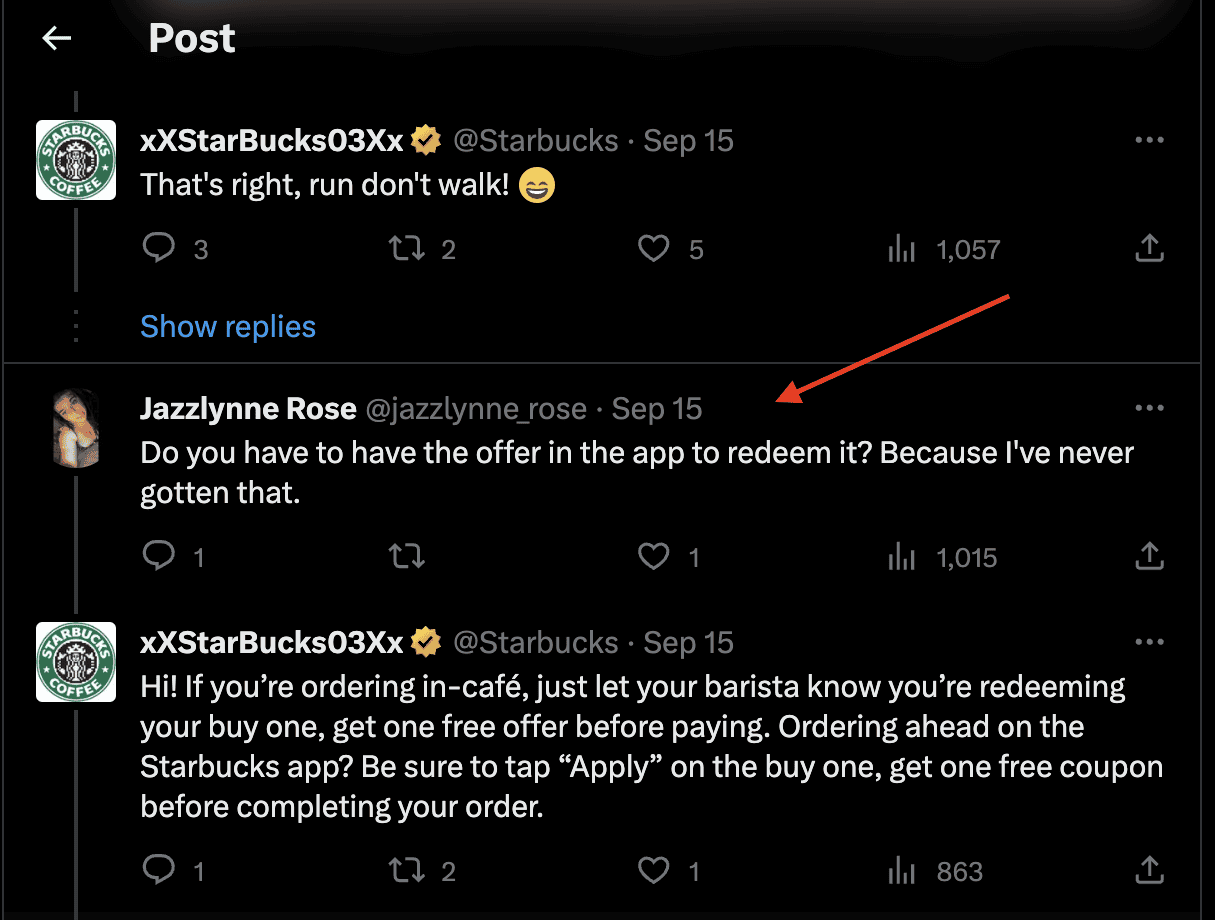
(Screenshot by Jugraj)
The company uses platforms like X to respond quickly to customer questions and concerns, demonstrating its commitment to customer satisfaction.
Both Nike and Starbucks demonstrate the power of social media for marketing by maintaining strong brand identities, engaging with their audiences, and using these platforms to drive sales and brand loyalty.
Unleash The Potential Of Your Business By Marketing It On Social
In a world where attention spans are shorter than ever, social media is emerging as the ultimate marketing superpower. It’s a driving force that can push your brand to new heights.
Its massive reach, laser-focused targeting, and real-time engagement are the key to success in a digital landscape. Social media offers countless marketing opportunities, from cost-effective ads to customer engagement and global reach.
Remember, it goes beyond likes and shares. It’s about building a thriving social media community around your brand.
So get out there, make your presence felt, and watch your business grow through the power of social media.

